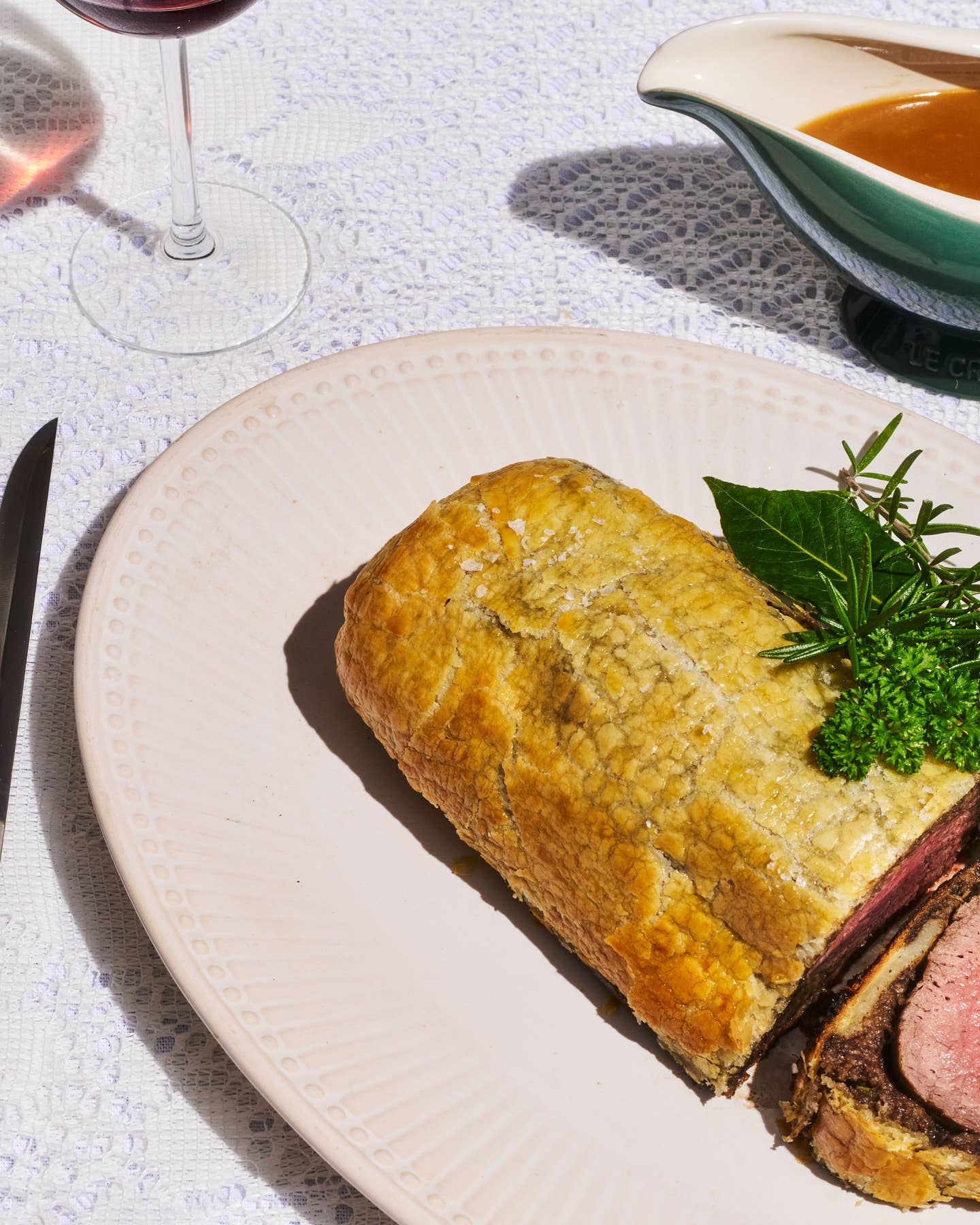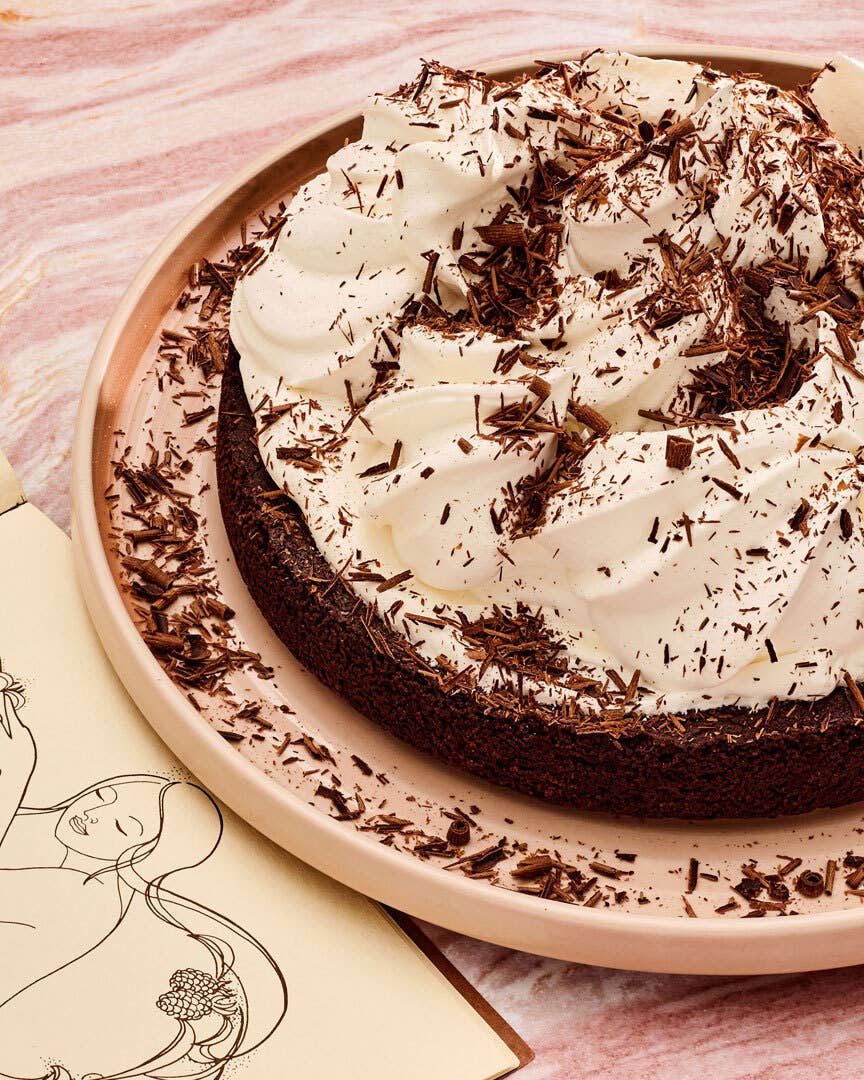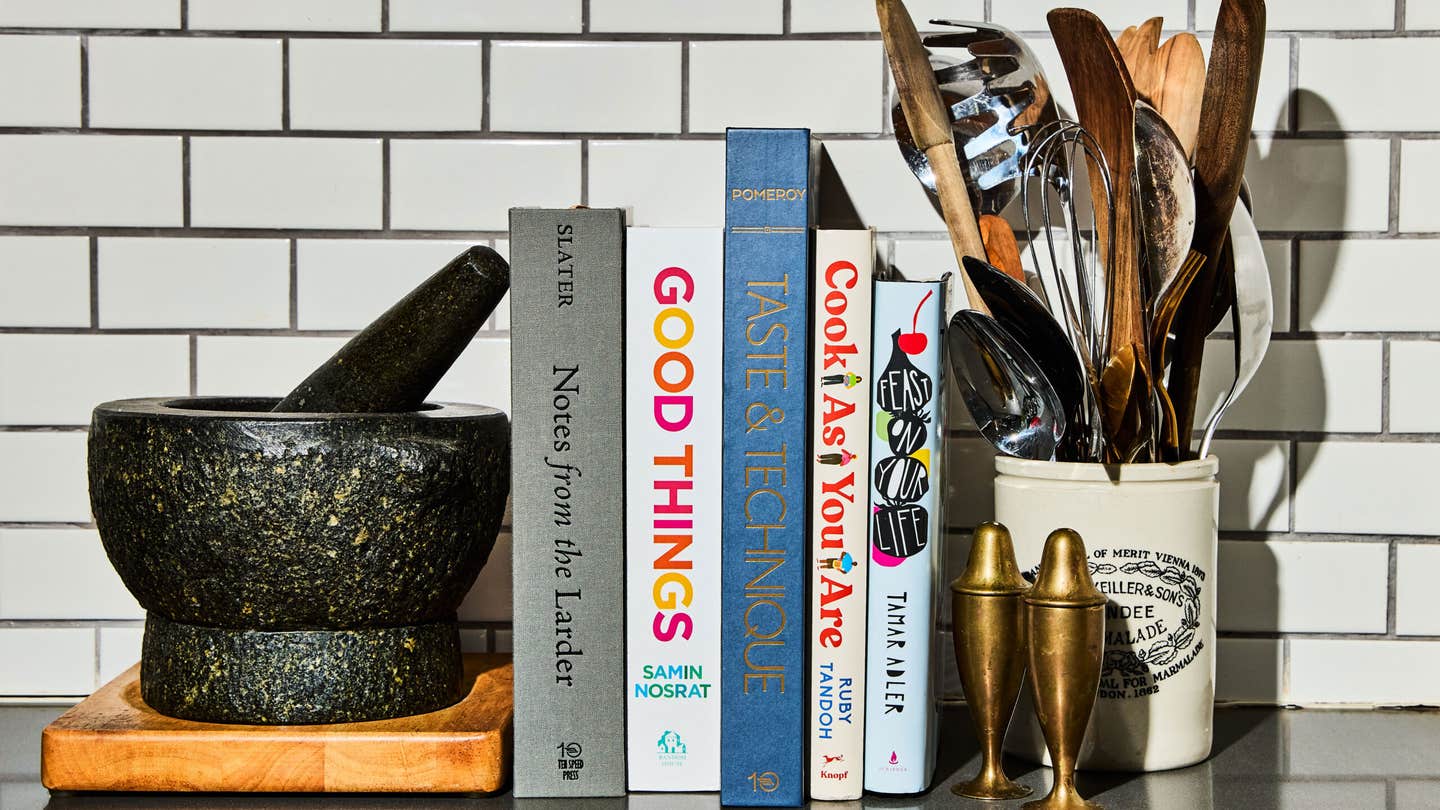
England’s 20-Year-Old ‘Two Fat Ladies’ is Still the Best Cooking Show Ever Made
What today’s food TV can learn from two middle-aged cooks with questionable technique, outsized personalities, and an unending passion for the good life
Two years ago today, Clarissa Dickson Wright—full name Clarissa Theresa Philomena Aileen Mary Josephine Agnes Elsie Trilby Louise Esmerelda Dickson Wright—died at 66 in London, but her legacy, as one of two most notorious and inspiring bombasts to ever appear on Western television, has never felt more relevant.
Dickson Wright and her co-star Jennifer Paterson (who died in 1999 at the age of 71) were the self-proclaimed Two Fat Ladies, the motorcycle-cruising, sass-talking, pork-loving, globe-trotting romanticists who starred in a British cooking show from 1996 to 1999. Their menus were half extremely appetizing, half Frankenfood (egg mousse aspic and tomato-smothered cod, anyone?). Their cooking advice, frequently questionable (entire dishes without a lick of salt). Their food styling more ‘70s nightmare than late ‘90s British mod (so. many. molds). But I’ve found myself re-watching a lot of Two Fat Ladies recently, even at a time when food TV has supposedly never been better, because for all its shortcomings, it remains the most compelling food show of the last 20 years.
If you want to watch a master in the kitchen convince you that yes, you really can make this beautiful-looking thing, go watch Ina. If you want to know why a recipe works, geek out with Alton Brown. If you want to make the perfect omelette, Jacques Pepin's reruns are there for you. But if you want to learn how to relish something, to really, truly love food and what it means to sit around a table, no one shows you better than the Two Fat Ladies.
Perched on Paterson’s black and chrome Triumph Thunderbird, the women toddled around the bucolic UK countryside and, in each episode, took over a gorgeous old fashioned kitchen to cook a special meal for all manner of guests: a young boys’ choir on Christmas Eve; Irish nuns in a palatial convent; a club of propeller plane racers in Scotland; and Portuguese potato pickers in Jersey.
The cooking was really just an excuse to get Dickson Wright and Paterson in a room together so they could crack wise and sing old army songs and make fun of Americans for their fears of “strong tastes and strong emotions.” Each episode ended with the guests happily feasting away while the ladies shared a drink, toasted to each others’ health, and drove off into the sunset—except when Dickson Wright took up umpiring a cricket match, or they argued about whether one of them sat on and crushed the other’s crate of raspberries.
Both Dickson Wright and Paterson were worldly, well educated, and ferociously intellectual cooks. Dickson Wright grew up eating Indian muttachar made by the family chef, a Jewish cook from Cochin, while her father imported special pigeon meat from Cairo. She furthered her culinary education by squandering her mother's fortune on fine food, yachts, and two bottles of gin a day, and then became a cook to pay the bills after hitting rock bottom. Paterson grew up in China and spoke fluent Portuguese, and when she wasn't hanging with her friends in the Port business or butting her way into upper class British social circles, she enjoyed stints in the likes of Germany and Hungary, lounging by swimming pools "with all the Hussars."
As such, the ladies cooked an eclectic mix of British classics and exotic foreign fare, never dumbing down their favorite tastes for others. They snuck anchovies into everything they could. They served chile-marinated pork and clams to 12-year-olds as if it were pizza. For a single breakfast at a brewery, Paterson jugged kippers and deviled kidneys while Dickson Wright experimented with huevos rancheros and johnnycakes.
Like all food TV, Two Fat Ladies was larded with artifice. The motorcycle. The utter quaintness of the destinations they visited. The ridiculous notion that the ladies were actually doing full caterings for people when Paterson could barely keep away from the booze, or they'd abandon the kitchen for half a day to go fishing (and try to seduce the fisherman). Even their camaraderie, it seems, was all for the camera. But for all the kitsch, the show never fell victim to shtick, and one thing was always clear: Their enthusiasm was utterly genuine.
There's a moment in that breakfast episode where Paterson adds her deviled sauce to a pan of kidneys overcooking on the stove. The recipe is comically English: seared lamb kidneys simmered with butter, Worcestershire sauce, Colman's mustard powder, and mushroom ketchup. The mixture hits the heat and you see the steam rise and Dickson Wright and Paterson take a deep, long whiff. "Ahhh," they sigh and smile in unison, and laugh with each other, and suddenly you have to know what this sauce tastes like, how it could drive these two middle-aged women who've seen the world and then some to such tongue-wagging pleasure.
Later in the episode they visit a traditional smokehouse to buy some haddock for kedgeree, and you wish you were shopping right there beside them. Not an episode goes by without Dickson Wright or Paterson insisting on the vital necessity of "proper" ingredients—real cheddar, say, not some abomination "wrapped in clingfilm" and sold in "palaces of hell" (supermarkets to the rest of us); true wild game, one of the UK's great bounties; homemade pickled walnuts to stir into your beurre blanc for turbot ("One must have treats, Jennifer").
I've never cooked from a Two Fat Ladies recipe (you can find a bunch here), and have never felt like I have to, because pedagogy isn't the point (and they never measured ingredients on camera anyhow). But if you watch enough episodes, you start to see how inspiring the women really were. Dickson Wright spends one episode recalling her time in Quercy, a former French province in the truffle-producing region of Perigord, while spreading a wad of dough microns-thin across an enormous table cloth. By the time she covers it with macerated apples (macerrrrating, she trills with great exaggeration) and rolls it up into a fat spiral, I'm craving not just Quercyan apple cake, tinged with orange blossom and lemon zest, but a trip to Quercy itself, to figure out what else the hell they're cooking in this part of the world I'd never heard of before.
At least that's what inspired me on the first viewing. On subsequent ones, I realize what I'm really craving is the right to look back at my life through the sherry-tinted glasses of nostalgia—and smile like she does. After the show ended, Dickson Wright took to writing and interviews to share the pains and delights of her adventure-filled past, from her childhood with an abusive father (who she unsuccessfully tried to poison) to getting caught having sex in the seats of Parliament. Paterson died the same year as the show's last episode, and was more tight-lipped anyway, but her years of globe-trotting and high-society deviancy were no slouch either.
By the time we see them in the first episode of Two Fat Ladies, Dickson Wright and Paterson are old souls, at peace with who they are, for better and for worse. Their time together on television was about food, and adventure, and pearl-clutching smart-assery, but it was ultimately a testament to two lives well lived. And a roadmap of how to live, Hussars, Thunderbirds, and all.
Keep Reading
Continue to Next Story










